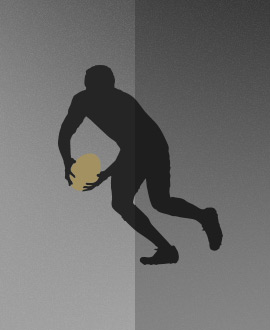

Footballers know only too well how differently their performances can be viewed by different observers. And that was a lesson Harry Orford learned quickly in his one and only senior appearance with Collingwood.
It came back in the middle of the 1893 season. Orford, not yet 18, had been establishing a decent reputation with a junior team called Edlington, based around Albert Park. When that team folded midway through 1893, Collingwood gave a trial soon afterwards to Orford, named in a back pocket against Footscray.
The Herald foreshadowed his arrival the night before the game, announcing: Collingwood and Oxford (sic) – the new combination. He comes from Edlington with renown as a back player.”
The next week, the same newspaper followed up: “Orford for his first match with the seniors played a very fair game for Collingwood last Saturday.” Unfortunately The Sporting Standard saw things a little differently, saying that Orford “is not worth his salt”.
Even more unfortunately, the Magpie selectors seemed to take the latter view too, and Harry Orford never played senior football again. Though he still went on to enjoy a fine sporting career.
Harry was actually born Norman Leslie Orford, but seems to have spent pretty much his whole life being referred to as Harry. He was born into a famous family, his great grandfather having brought prisoners from England to Hobart Town in the early 1800s. His father, George Henry, was a renowned printer and publisher who would publish a number of newspapers across his life, including a lengthy stint in charge of the Brighton Southern Cross, where he became a powerful local identity.
Norman/Harry was born in 1875 and would go on to follow his father into the printing trade, ending up as the proprietor of the Brighton Southern Cross. In many of his printing ventures, he partnered up with Fred Blackham, who played two games with Melbourne in 1897, and who was a brother of Test cricketer Jack.
After his brief Collingwood adventure, Harry headed to Kyabram and Tatura (via a brief stint with Brighton Excelsior), where his father had taken over the Tatura Herald. Harry resumed playing cricket, footy (he was made captain of Tatura in ’94) and athletics there, a newspaper describing his game in glowing terms: "He is a flier and makes no error with the ball when he gets it."
But the country experiment didn’t last long, and by 1895 Harry was back in Melbourne. He returned to football with Brighton, and in 1895 was chosen in the combined juniors team that played Essendon before the start of the season. He was also a fine local cricketer, often alongside his brother Bob, and by 1896 he was captaining the Brighton Cricket Club. He was a fine wicketkeeper/batsman, and both brothers would go on to play for the club when it was admitted to pennant/district ranks in 1905/06. Harry would remain actively involved with many of the sporting clubs around Brighton and Elsternwick, including lawn bowls.
In the end, Harry Orford’s senior football career was as fleeting as they come. But he enjoyed a productive and rewarding career at local level across a number of different sports – and at least with his family running local newspapers, he didn’t have to worry about the sort of negative judgements that had followed his brief stint with Collingwood!
- Michael Roberts
CFC Career Stats
| Season played | Games | Goals | Finals | Win % |
|---|---|---|---|---|
| 1893 | 1 | 0 | 0 | 0.0% |
CFC Season by Season Stats
| Season | GP | GL | B | K | H | T | D | Guernsey No. | ||
|---|---|---|---|---|---|---|---|---|---|---|






